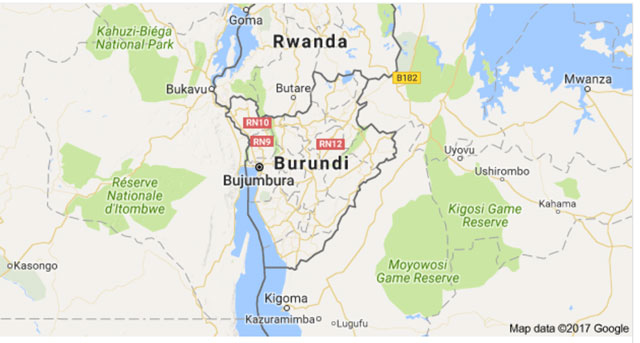
Nairobi, Kenya | AFP | A lack of foreign currency means petrol pumps are running dry across Burundi, the government has admitted, as the country struggles with a serious two-year-old political crisis.
Long queues have been quickly forming in the capital Bujumbura where petrol is only available at some of the fuel stations some of the time.
“It’s been a disaster for the last week because we only find one or two stations stocked every other day across the whole capital,” said Hassan, a 35-year-old taxi driver reached by telephone.
He said that when a fuel truck delivers, the news spreads like wildfire among desperate motorists, and “hundreds of cars and buses rush over to it, and in a few hours there is not a drop left.”
The shortage has triggered a sharp rise in the price of black market petrol which now sells for 7,000 Burundi francs ($4 or 3.70 euros) per litre, more than three times the official rate.
The price of taxi rides has increased and many drivers have chosen to leave vehicles at home and travel on foot, leaving the capital strangely quiet.
But the situation is worse still outside Bujumbura.
In the second city of Gitega residents said there has been almost no petrol for the last month.
“Sometimes one of the 10 stations in the city receives a few thousand litres, but they are gone in a few hours,” said one resident who did not want to be named saying anything the government might dislike.
– ‘Total asphyxiation’ –
Urged by parliament to investigate the cause of the shortages, Burundi’s energy minister, Come Manirakiza, said last week it was down to “the lack of sufficient foreign currency” to pay for imports to the landlocked central African country.
Manirakiza said that “due to the period we are in” importers were unable to get hold of the US dollars they need to import fuel.
Burundi is in the midst of a deep political crisis triggered by President Pierre Nkurunziza’s decision to run for a controversial third term in April 2015, a move his opponents said was illegal.
Many months of sometimes violent upheaval followed, leaving at least 500 dead while a further 400,000 people have left the country.
The political crisis has triggered an economic crisis, deepened by sanctions imposed on Burundi by the EU, the impoverished nation’s biggest donor, accounting for 70 percent of aid.
The EU and member countries stopped direct budgetary support to the Burundian government in protest at a brutal crackdown on opponents, but specific projects are still being financed, a diplomat said on condition of anonymity, including dams, roads, health and education.
The EU also continues to pay for fuel for power stations supplying around one-sixth of the country’s electricity.
That support, the diplomat said, has “saved the country from total asphyxiation”.
 The Independent Uganda: You get the Truth we Pay the Price
The Independent Uganda: You get the Truth we Pay the Price



